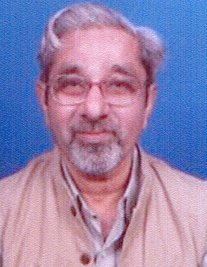Ghanshyam Shah, born in Gujarat, India, in 1939. Ph.D. from Gujarat University, Ahmedabad. Professor of Social Sciences, at the Centre of Social Medicine and Community Health, Jawaharlal Nehru University, New Delhi.
Fellow (1 September 2003 – 30 June 2004)
CIVIL SOCIETY, STATE AND POOR
During my stay at NIAS I concentrated on looking at the contemporary nature of Civil Society and the State in general, and India in particular, from the perspective of the poor. Thanks to the excellent NIAS library facility I was able to read and reflect on theoretical studies on civil society in the contemporary literature; the changing nature of civil society in developed countries and Asia, and to formulate my position for empirical inquiry in India. During the course of my readings, I realised that it is important to differentiate between civil society and society. Society is a broad, all encompassing spectrum of social, cultural, economic and political groups and interpersonal relationships among the individuals; whereas civil society is an analytical site concerned with the “common good”. To some extent it is autonomous from the state and society at large. At the same time it is a part of the society and associated with the state in defining the common good. It influences and monitors agendas and functioning of both. Space for deliberation and activities related to the common good in the outer orbit of the state is civil society. The space of civil society is fluid. The unequal strength and position of various strata in stratified society and their cultures are reflected in the nature of civil society. There is a need to study the conceptualisation of civil society – other than private and State spheres – in Asia. I realised that there was the thinking of ‘such space’ being autonomous from the state and also from the religious and social institutions in Indian political thought. I have begun to explore those philosophical writings. I have analyzed the nature of Poverty and Human development in South Asia. The analysis is based on the secondary data. This will constitute a chapter of the proposed book. I also spent time at NIAS in revising and enlarging my book “Social Movements in India” published in 1990 for the second edition. I have also written on the vulnerability of the poor to ‘fundamentalist’ and ‘reactionary’ forces. How and why the fundamentalist forces succeeded in mobilizing the poor against the Muslims in the recent ethnic violence in Gujarat.
